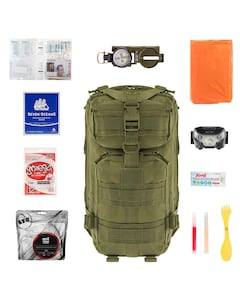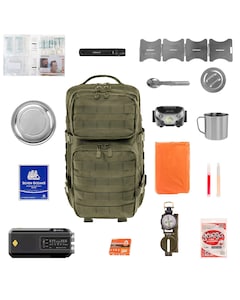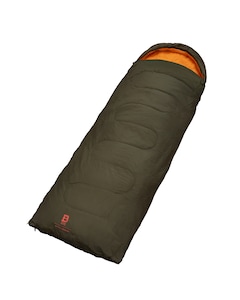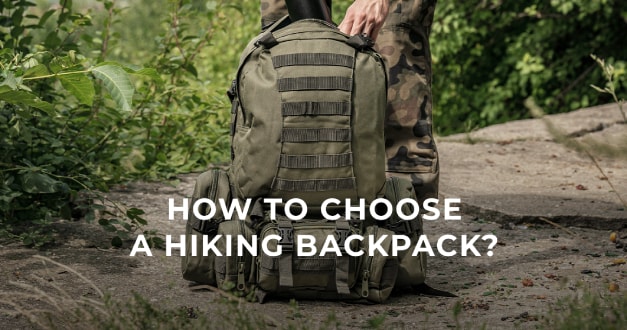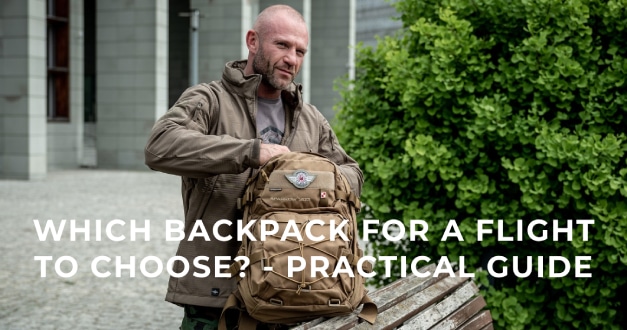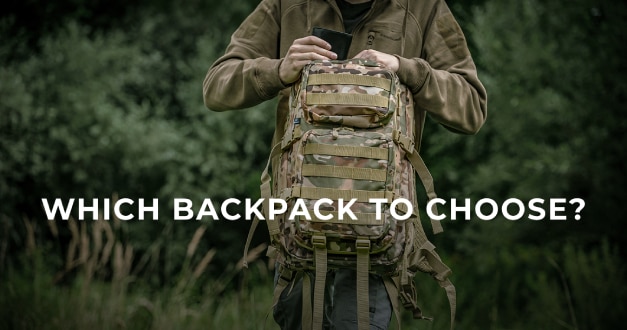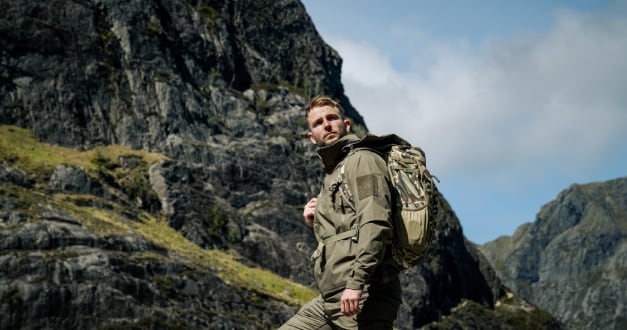Bug out bag - a complete list of equipment for a crisis
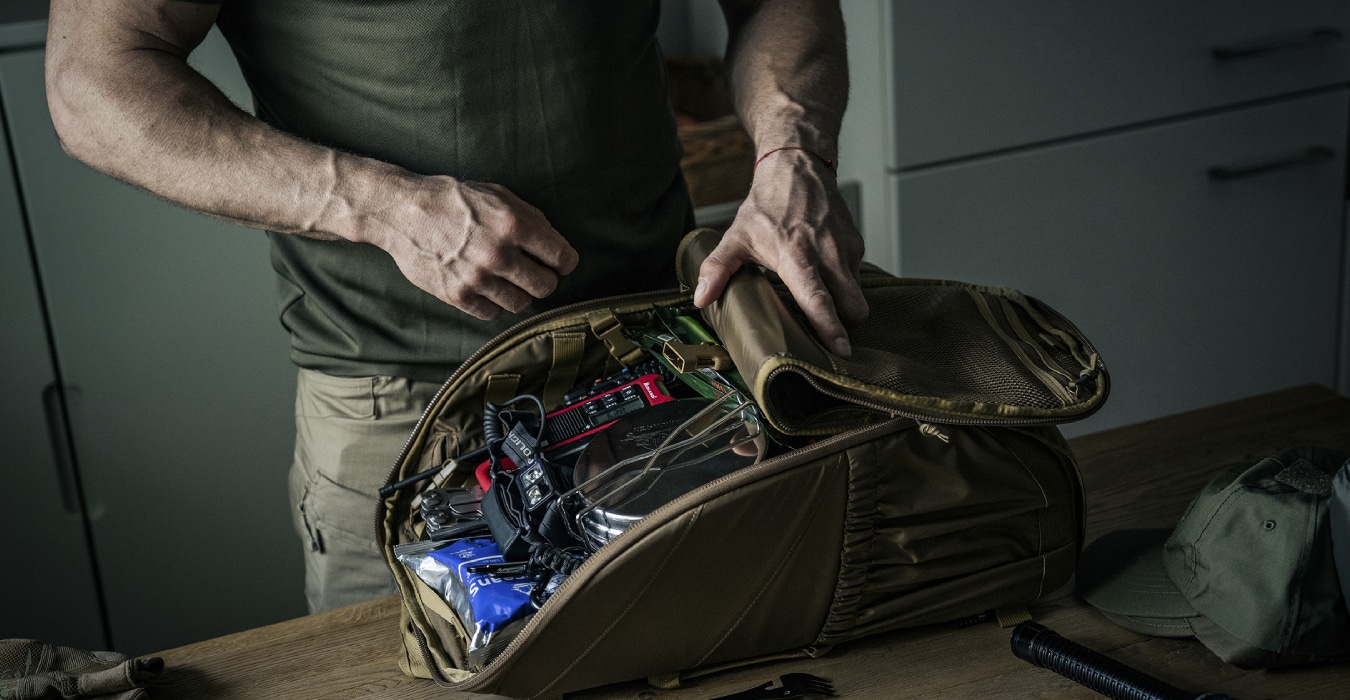
Natural disasters, wars and conflicts or other unforeseen events may force us to leave our place of residence immediately. In the event of such a situation, it is advisable to stock up in advance with a properly equipped bug out bag or backpack, which will be helpful in case you need to quickly escape from our place of residence.
The following guide will tell you what a bug out bag is and what items should be in it.
What is a bug out bag and what elements should it include?
A bug out bag (BOB) is a properly prepared backpack (or bag) containing essential items and supplies in case of an emergency. This type of backpack comes in handy in the event of an evacuation caused by a natural disaster, riot, war or during a widespread blackout.
The contents of a bug out bag will vary depending on specific individuals and their needs, but certain items are universal and should be included in any such kit. Below is a list of items that should be included in an emergency kit:
What to pack in an Bug out bag? - list
When assembling your BOB, it is worth bearing in mind the 72-hour rule, well-known among preppers, which assumes that a bug out bag should contain enough equipment for three days. This assumption originated in the United States, which assumes that in most situations, the services will be able to arrive with assistance within 72 hours of an emergency.
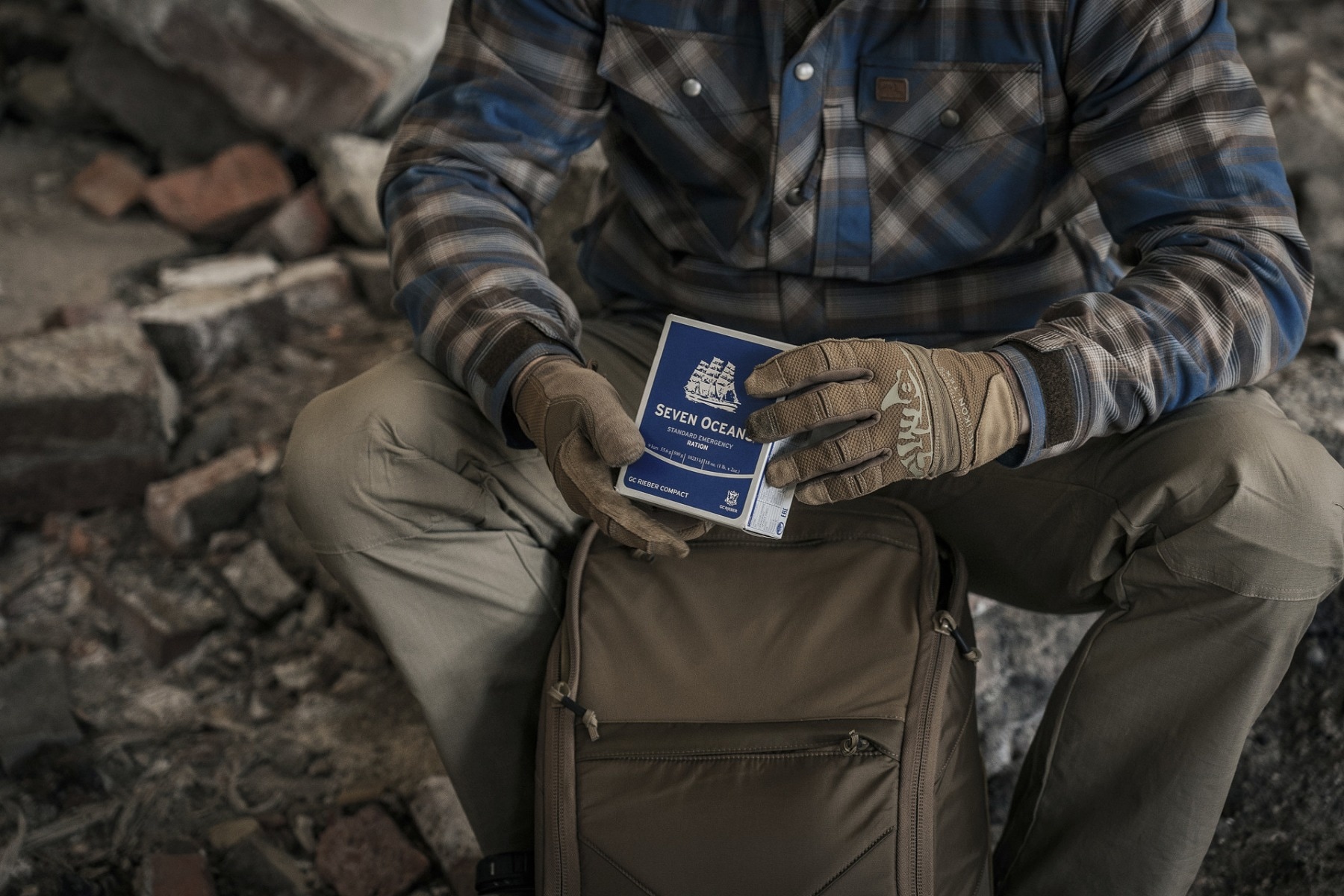
In the following section of this guide, we list the most important things that should be in a bug out bag. This is only a hint, as everyone may need different items.
Water supply and long-term food
Water is a staple in a bug out bag. Even short-term dehydration can seriously damage your health. It is best to pack about 3 liters of water in your bug out bag to start with. In addition, it is a good idea to stock up on filter or water treatment tablets. This way, you will be able to easily obtain water from natural reservoirs when supplies run out.
You must not, of course, forget about food products. Avoid food items that spoil quickly. It's a good idea to pack long-lasting food and food that doesn't weigh too much but provides plenty of energy:
- freeze-dried meals,
- chocolate and nut bars,
- dried beef, e.g. beef jerky,
- cans and preserved food,
- nuts, dried fruits,
- coffee or chocolate with caffeine,
- Seven Oceans type emergency rations,
- military rations.
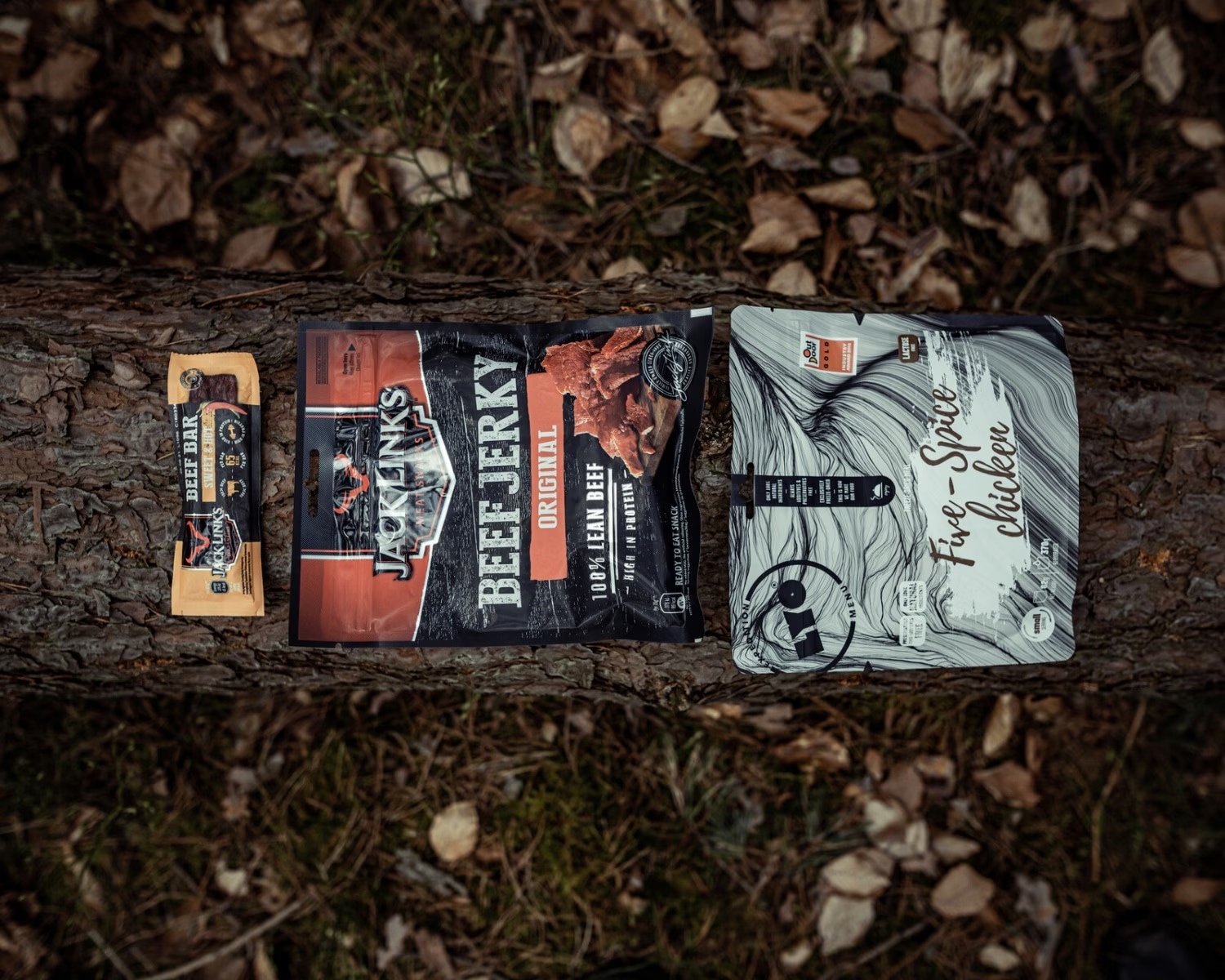
First aid kit - essential medical supplies
Medical supplies are an essential element of any bug out bag. Prepare your first aid kit to include:
- bandages,
- adhesive bandages,
- disinfectants,
- painkillers and anti-inflammatory pills,
- medications taken on a daily basis,
- diarrhea remedies,
- electrolytes,
- disposable gloves,
- adhesive,
- thermal foil,
- scissors and tweezers,
- tourniquet,
- respiratory mask.
The above are just the basic items, but of course you may need others, so it all depends on your needs. There are first aid kits available on the market with or without equipment that you can complete yourself.
It is important to regularly check the expiration dates of the products in the first aid kit, especially medicines. Expired items must be replaced with new ones if necessary.
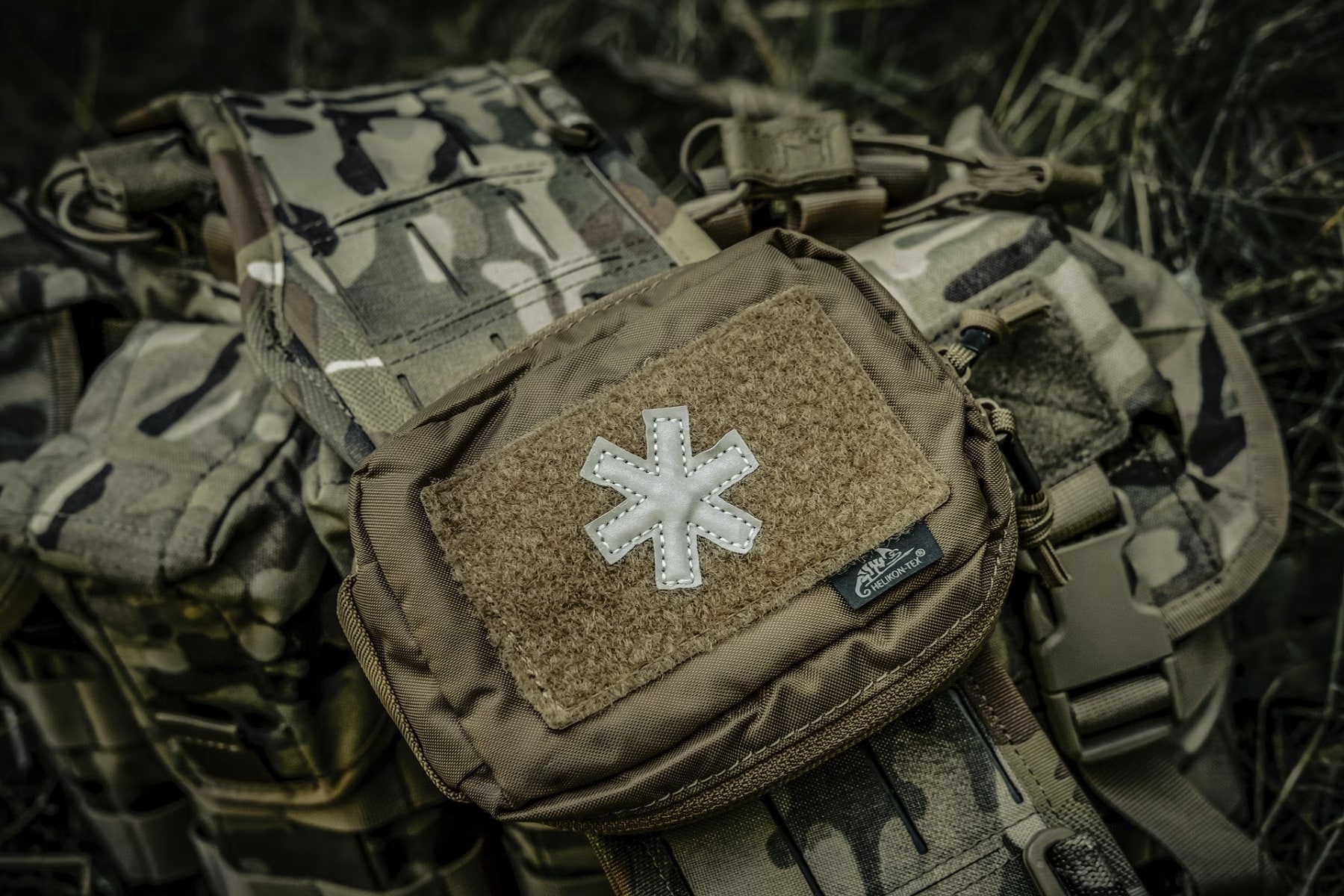
Radio communication and navigation equipment
In an emergency situation, it is unlikely that you will have constant access to a source of electricity. In that case, typical electronic devices, such as phones or tablets, will quickly become useless.
For this reason, it is worth packing radio communication devices in your backpack. A radiotelephone and a battery-powered or hand-crank FM/AM radio will be useful. These devices will allow you to communicate with others and provide constant access to information about the current situation, warnings and instructions from emergency services.
Make sure to take a map and compass. In the event of a navigation system failure or power outage, the map and compass will help you orient yourself, find your way and reach your destination.
Source of light
A flashlight should also be included in your bug out bag. It will be useful when moving around in the field after dark, as well as in situations when you find yourself indoors without access to light.
You can opt for a headlamp because then you will have your hands free to do other activities. You can also choose between regular handheld and angle flashlights, which combine the features of both types of flashlights. No matter what type of flashlight you choose, pay attention to whether it is durable, waterproof and what its range is.
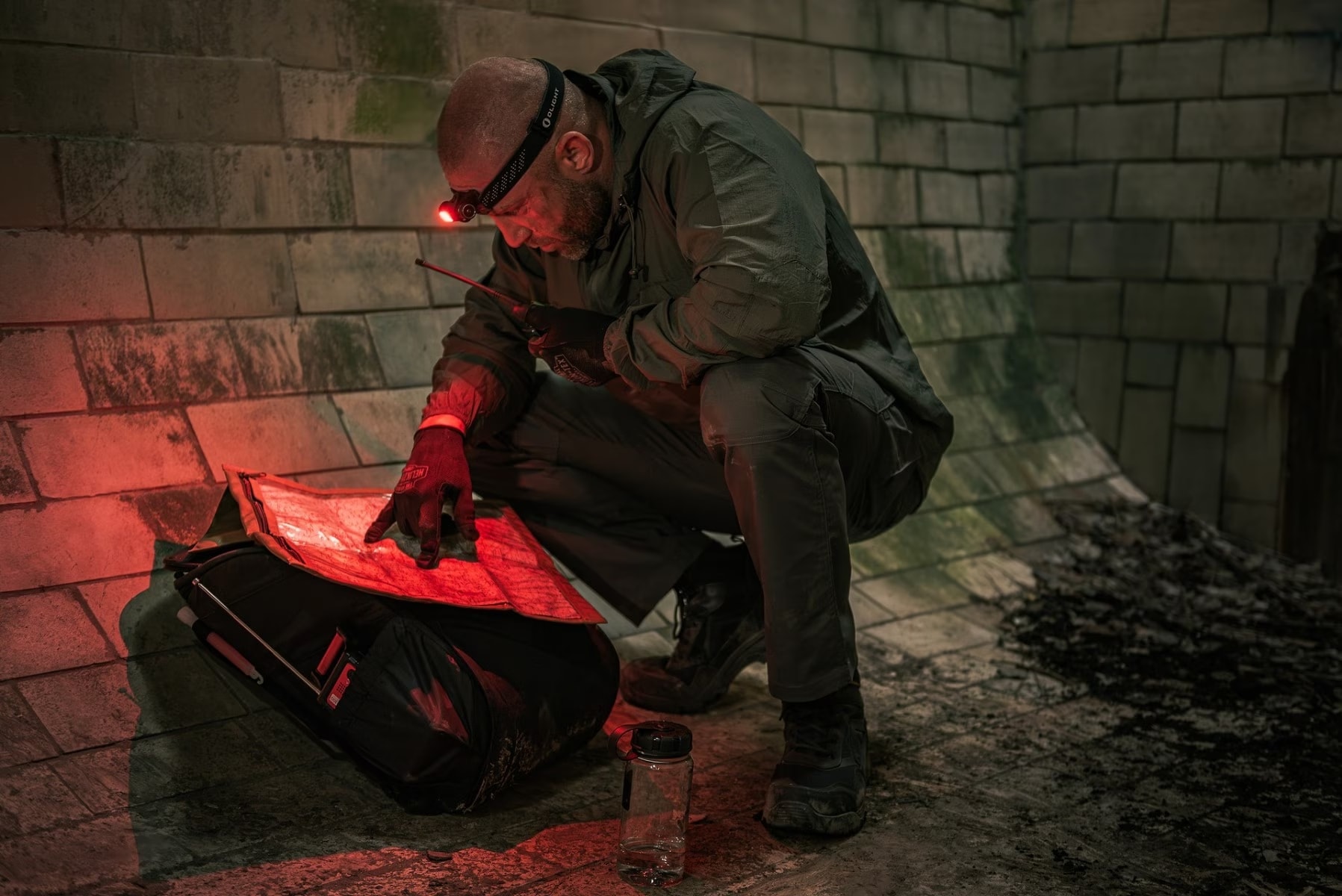
Be sure to take spare power sources compatible with your devices. These may be batteries, rechargeable batteries or a powerbank.
Necessary documents and cash
Your bug out bag should contain copies of your most important documents. During a crisis, your home may be devastated or robbed, and you will lose access to valuable documentation. Prepare the documents in paper form and additionally scan them and upload them to a flash drive. Documents that are worth having with you include:
- ID card,
- property deeds,
- passport,
- driver's license,
- insurance policies (car, home, health).
In addition, make a paper list of contacts to your loved ones – it will be useful when you don't have access to your phone.
Take some cash with you as well. Preferably in both coins and bills. You may not be able to use ATMs, in which case you will be left without cash.
Fire source and accessories for preparing a meal in the field
The bug out bag should also include matches, a lighter and a flint. With their help, you will be able, for example, to light a fire in the place where you have set up your temporary shelter. This, in turn, will allow you to keep warm, prepare a hot meal or scare away wild animals. The flames can also serve as a signal to rescuers or simply illuminate the area you are in when it gets dark.
For preparing meals in the field, it is worth taking a small foldable travel stove with a supply of fuel or a gas cartridge. You will also need: a mess tin, a spork or a set of travel cutlery and a mug.
Keep fire sources, kindling and fuel tightly closed, e.g. in a Ziploc bag to protect them from getting wet.
Accommodation accessories - sleeping bag and others
Be sure to bring basic accommodation accessories, as you will most likely have to spend the night in the field. Although the situation may be stressful and conditions are far from ideal, ensuring that you get enough rest is essential to keep going.
In your bug out bag you can pack: sleeping bag, camping tarp and mat. It is important to always pay attention to the weight of these products in order not to burden your equipment unnecessarily.
Rainwear and a change of clothes
Assuming you will be in this predicament for 72 hours, you don't need to take too many clothes with you. These are not essential elements for survival. However, it is worth taking at least one spare pair of underwear and a change of T-shirt.
It's always a good idea to take a waterproof jacket or poncho - rainfall can occur regardless of the season. This is also recommended in the Government Centre for Security's Emergency and War Situations guide.
Personal hygiene accessories
Since a bug out bag is supposed to contain everything you need in order to survive for 3 days, there is no need to take a whole set of toiletries with you.
The assumption is that these are to be the basics that will at least keep your body in better condition and improve your well-being. What personal hygiene accessories are worth taking with you? Mainly products such as:
- tissues,
- wet wipes,
- disinfectant gel,
- quick-drying towel,
- soap,
- travel hygiene kit consisting of toothpaste and toothbrush,
- toilet paper,
- feminine hygiene products if needed.
Universal tool set - multitool, knife and others
It's a good idea to take some basic tools with you in your bug out bag. We recommend choosing a lightweight and handy model of multitool. What distinguishes this type of product is, above all, its multifunctionality. Depending on the model you have, a multitool may be equipped with, among others: pliers, knife blade, saw, wire cutter, scissors, screwdriver, file and many others.
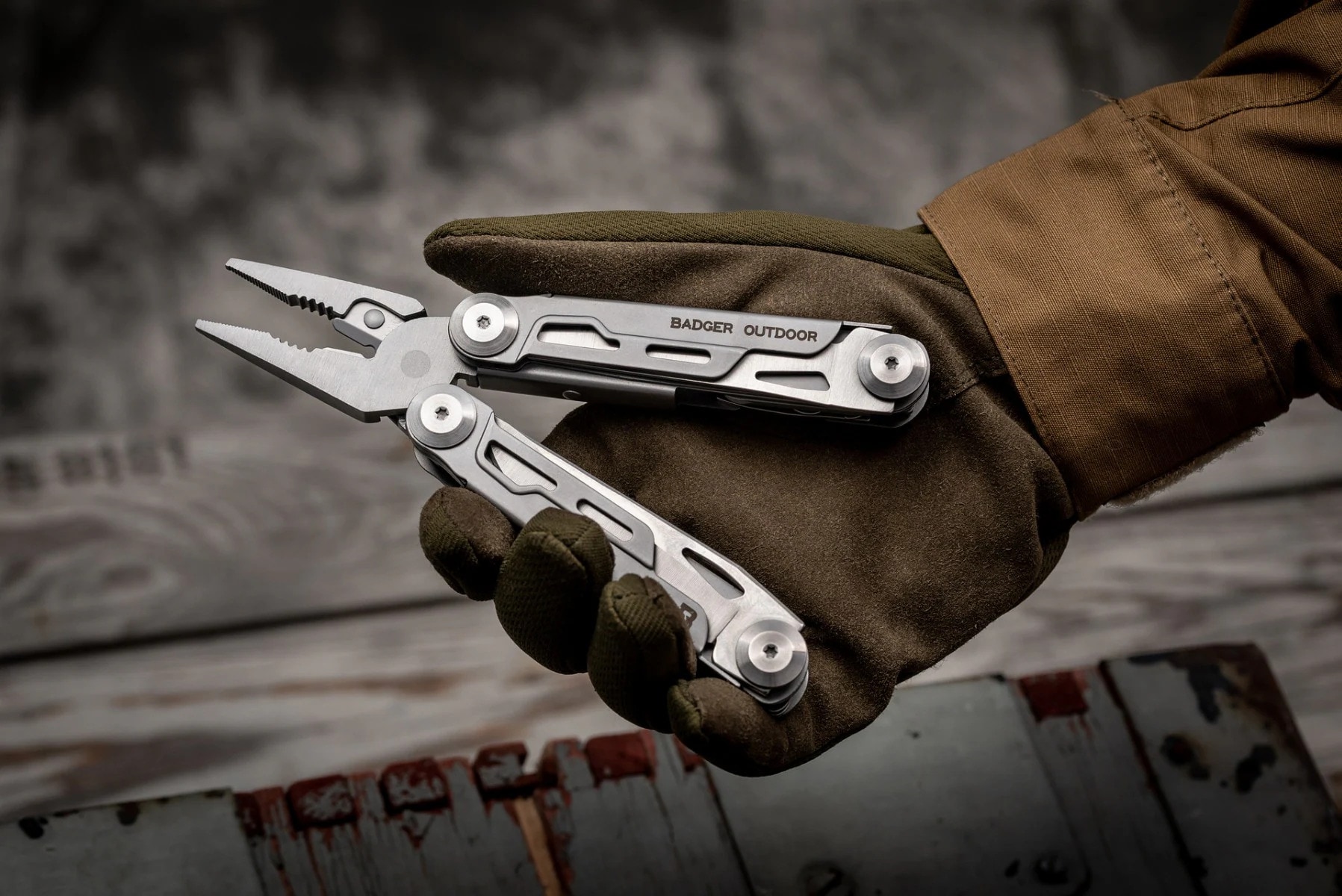
What else is worth packing in a bug out bag?
The above list contains essential items that should be included in every bug out bag. However, it is worth taking other items as well. According to the guide prepared by the Government Centre for Security, it is also worth including items such as:
- pencil and notebook,
- garbage bags,
- whistle,
- rubber bands, strings, tape, tourniquet.
Is it possible to buy a complete bug out bag with equipment?
Currently, you can buy complete bug out bags on the market, which already contain the necessary items for surviving an emergency situation. Not everyone wants to create their own set, so many stores simply make it easier for customers. These types of bags are very diverse, but their common feature is that they contain basic elements that will help you survive this difficult time.
Some models of bug out bags with equipment contain up to 100 accessories, which are divided into modules such as: food, first aid, emergency communication and others. This makes it easier to find each item in such a bag.
Bug out bags offer at MILITARY.EU
If you want to prepare in advance for an emergency situation and purchase a bug out bag, we encourage you to check out the offer of this type of bags at MILITARY.EU.
We offer fully equipped bug out bags with various capacities, depending on the equipment inside. They contain everything necessary to ensure safety and self-sufficiency in difficult conditions. All these bags have numerous pockets and compartments and are made of durable materials that are resistant to abrasion and tearing.
We also have bags without equipment for those who want to complete their own set. There are models available with capacities such as: 25 l, 30 l, 40 l and more. Noteworthy are, for example, bags that can be unfolded and used as a sleeping mat. Many of them are made of 100% waterproof nylon, so you can be sure that the equipment will not be damaged by rain.

